Join the 2025 'Dante's The Divine Comedy' Read-Along
Everything you need to descend to Hell, pass through Purgatory, and finally ascend to Paradise!
Beauty awakens the soul to act.
~ From The Divine Comedy
Hello friends,
I am so excited to announce this read-along that I have been working since mid-2024 (or one could say for 8 years since 2017!). Treat this post as a personal invitation and a welcome-pack with all the sources that you will need to join this exciting journey.
(If this email appears truncated, click here to read the full piece on Substack)
Hello friends,
I’m excited to invite you all to join my Dante Read-Along in 2025! Together, we’ll embark on a deep exploration of The Divine Comedy, my favourite book of all time.
So, what do I mean by a read-along?
We’ll read one canto per week (each only 2-3 pages long), taking the time to uncover the rich symbols, allegories, and hidden meanings behind each one. Some call this a ‘slow-read,’ but I believe the key isn’t in speed of reading but in the quality of it; it’s about savouring the story as deeply and joyfully as possible. We will descend to Inferno and then climb up to Purgatorio until we finally ascend to Paradiso!
While Dante’s The Divine Comedy is a book that can be read and re-read countless times, revealing new insights with each encounter, my hope for this read-along is that we can walk away feeling we truly know the work. To me, knowing means it has changed the way we live and act in the world.
Every week I am going to read one canto with all of you and will be sending you a post with short summary of the canto (to refresh your memory); with some philosophical exercises (more on this later)1; and a detailed description of characters, symbols, and references so you could enjoy the book fully. Each article will have a voiceover so you can listen to it if you don’t have time to read; there will be also a chat-discussion group for each canto where you can share impressions or ask questions to other readers.
But first, let’s explore briefly why one should read Dante in the first place?
1) Why should you read The Divine Comedy? 🌑
I could easily write an entire book on this topic (and next week, I will share a full article delving into my love for The Divine Comedy), but here are three brief reasons:
It’s truly beautiful, and you’ll see it for yourself as soon as you read the opening lines.
Michelangelo, Leonardo, Botticelli, Chaucer, Milton, Tchaikovsky, Liszt, Borges, T.S. Eliot and infinite amount of other artists, authors, composers were inspired by Dante’s masterpiece and considered it to be divine.
Dante’s The Divine Comedy is for anyone who has reached a painful point in life where the past has ceased to make sense and the way forward is unclear. Anyone facing the future with confusion, anxiety, despair.
When the American writer William Styron emerged from his first major bout of depression, he described the experience by quoting a single line from Dante, the last line of Inferno, saying that he "came forth and once again beheld the stars": e quindi uscimmo a riveder le stelle.2
It is strange that sometimes you have to go through hell to reach paradise. So, imagine you’re in a bad or confusing place psychologically - Dante finds himself in the forest dark - and you try to find out where did everything go wrong, how did you end up in a place you are right now. But while some writers and artists only point to disaster but not the way out, Dante shows us sublimely and beautifully the way out, how we can examine the levels of our morals, ideas, thoughts and beliefs to beheld the stars again!
2) What do I need to begin?🌒
You’ll need a copy of Dante’s Divine Comedy (of course!)—I’ll discuss which edition to choose in the next section.
Turn on the notifications. Make sure that the toggle on ‘Dante Read-Along’ is turned on like on the screenshot below. (Click here to jump to your notification settings. If any problems feel free to email me enquiries@artidote.uk )
That’s pretty much it! It would be great if you could download the free Substack App (IOS, Android), which will allow you to join Dante Read-Along chat, access podcast episodes and voice-overs)
3. Which edition should I choose?🌒
Everyman edition with Allen Mandelbaum’s translation.
There are many excellent editions available, but my favourite English translation is Allen Mandelbaum’s, published by Everyman.
When I had journeyed half of our life’s way,
I found myself within a shadowed forest,
for I had lost the path that does not stray.(Mandelbaum)
Mandelbaum’s translation is smooth and accessible, includes all three parts of The Divine Comedy (unlike some editions that only feature Inferno, just one-third of the work), and offers helpful explanatory notes at the back. It also has wonderful illustrations by Botticelli. This is the translation I am going to use.
Arcturus Epic Classics edition with Henry Longfellow’s translation.
MIDWAY upon the journey of our life
I found myself within a forest dark,
For the straightforward pathway had been lost.(Longfellow)
Longfellow’s translation is a classic. Readers can compare the first three lines of Inferno I shared above to decide which translation suits their reading style. The edition I mentioned is beautifully designed, featuring Gustave Doré’s iconic illustrations, though it lacks explanatory notes at the back.
Penguin edition with the translation by Robin Kirkpatrick
At one point midway on our path in life,
I came around and found myself now searching
through a dark wood, the right way blurred and lost.
(Kirkpatrick)
Penguin edition of Inferno is the one you will see more often in the bookshops. Once again feel free to compare the first three lines that I included above and see if it suits you better.
While one or five dollars may not matter in the grand scheme of things, it’s worth noting the differences: the Everyman edition includes all three books of The Divine Comedy, explanatory notes, and Botticelli’s illustrations for £17; the Arkturus edition features Longfellow’s translation, all three books, and Doré’s stunning illustrations for £19; and finally, the Penguin edition contains only the first book (Inferno), with no illustrations, for £16.
Final note:
It doesn’t matter which edition or translation you choose, as long as you can immerse yourself in the flow of Dante’s mind and fully embrace the experience. All of the editions mentioned above are excellent publications that you’ll be glad to have on your shelf.
4. Meet the Team!🌒
O human race, born to fly upward, wherefore at a little wind dost thou so fall?
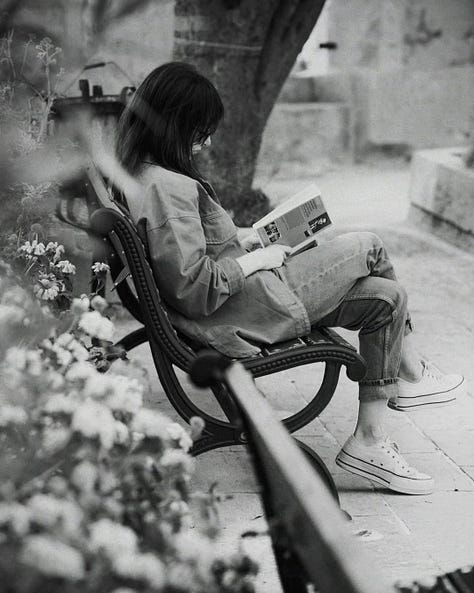
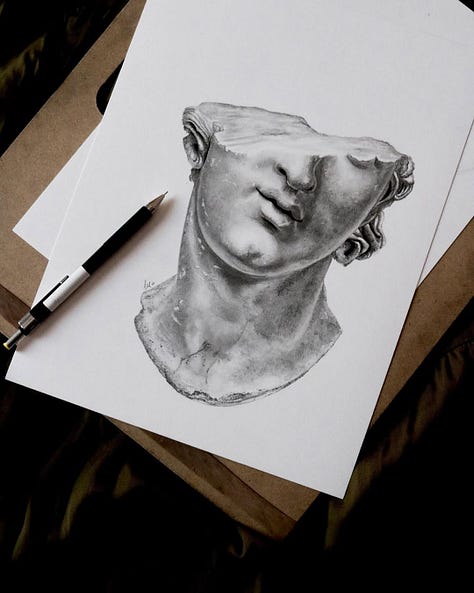
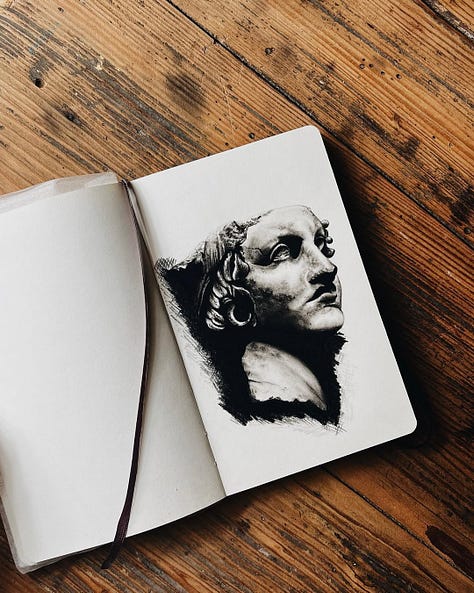
I feel privileged and fortunate enough to have two amazing people on the team.
as the editor and contributor (you will meet her in her own words), and as our illustrator whose beautiful drawings will embellish this read-along.Here’s Luana’s amazing logo for our read-along:
5. Can I read at my own pace?🌒
Yes, absolutely! Every post, discussion thread, and character page will be carefully organised, allowing you to read at your own pace while staying connected to our reading community.
Just keep in mind, the goal of this project is to make reading Dante both enjoyable and deeply meaningful for you.
6. Any other questions?🌒
If you still have questions, feel free to send me a direct message by clicking the button below. (you can also send me an email enquiries @ artidote.uk)
7. Is the read-along free?🌙
Yes, all the main material (weekly posts, character profiles, deep-dives and podcast) is going to be free of charge. But you’re welcome to support this project by becoming a paid member.
8. When does it begin?☀️
The first post will arrive in your inboxes on Sunday, January 12th, 2025. From that day forward, we’ll embark on our journey, reading one canto per week. If you’re joining us, be sure to have your copy of The Divine Comedy ready by then!
I will be explaining ‘philosophical exercises’ in the context of Dante as well. In the meantime, my piece on Hadot (who inspired my approach) serves as the perfect introduction.
From Prue Shaw’s wonderful book ‘Reading Dante’.

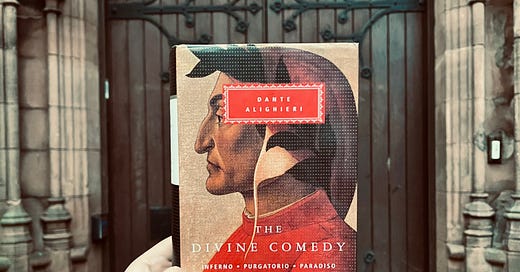



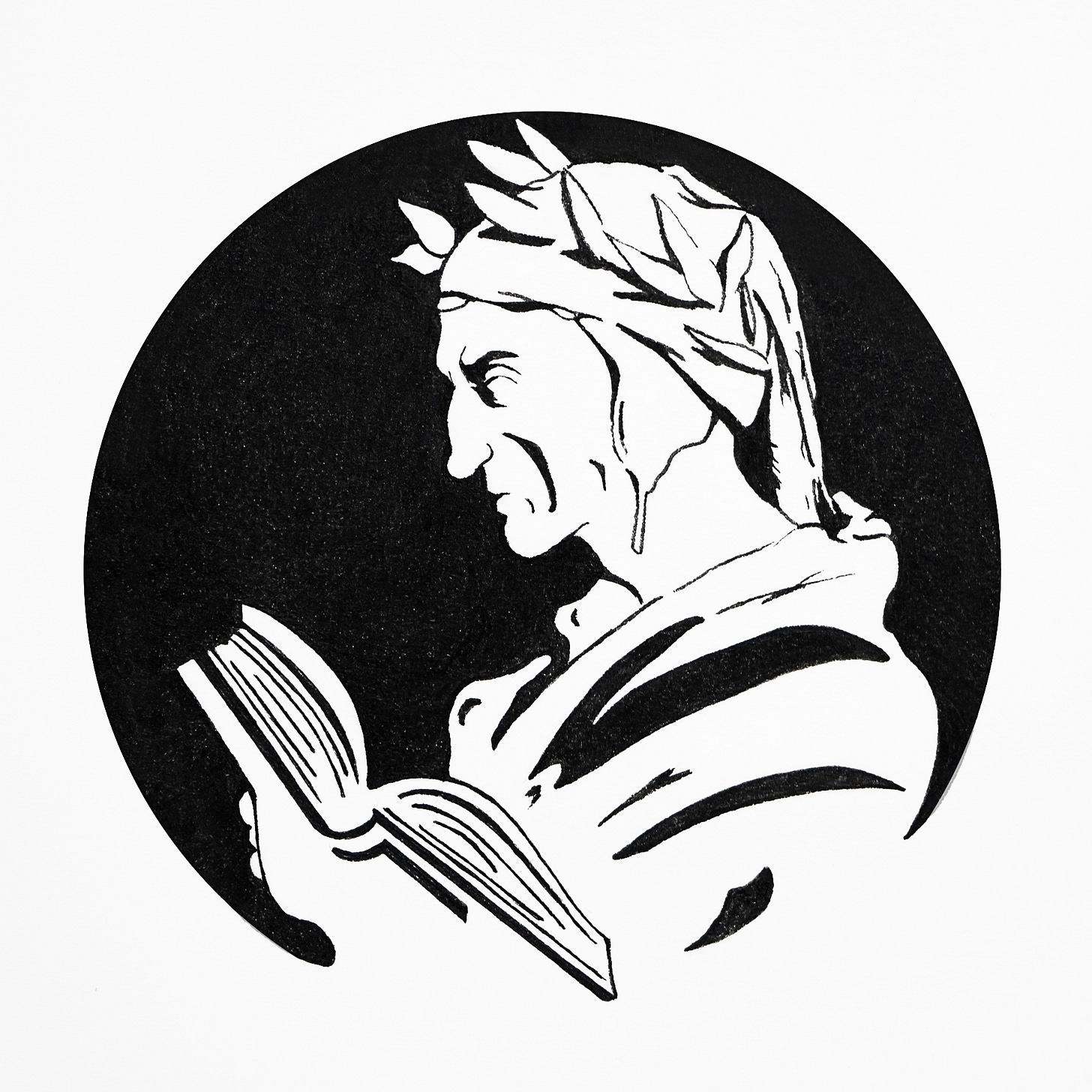


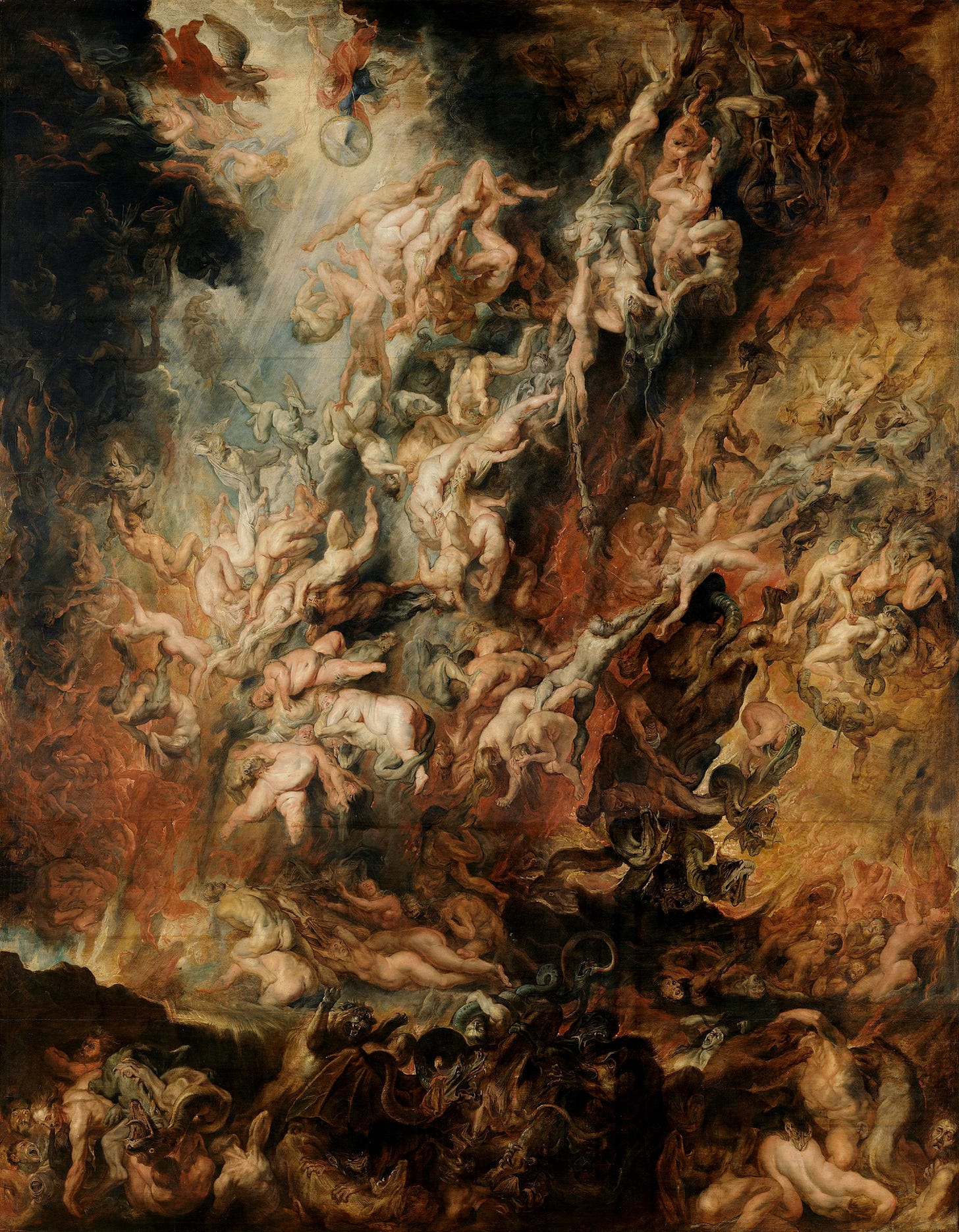


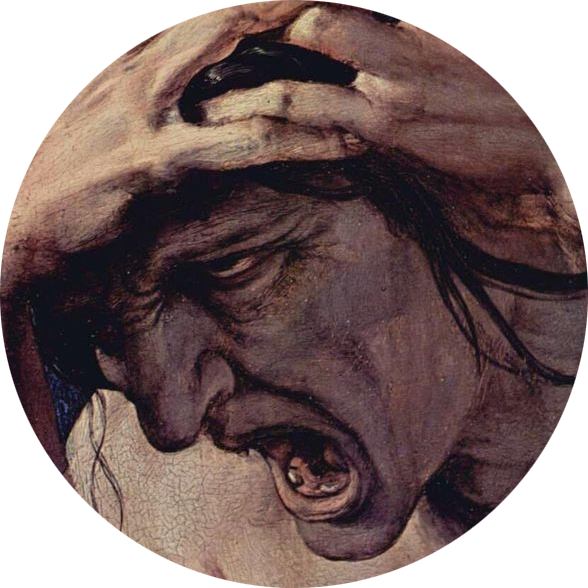

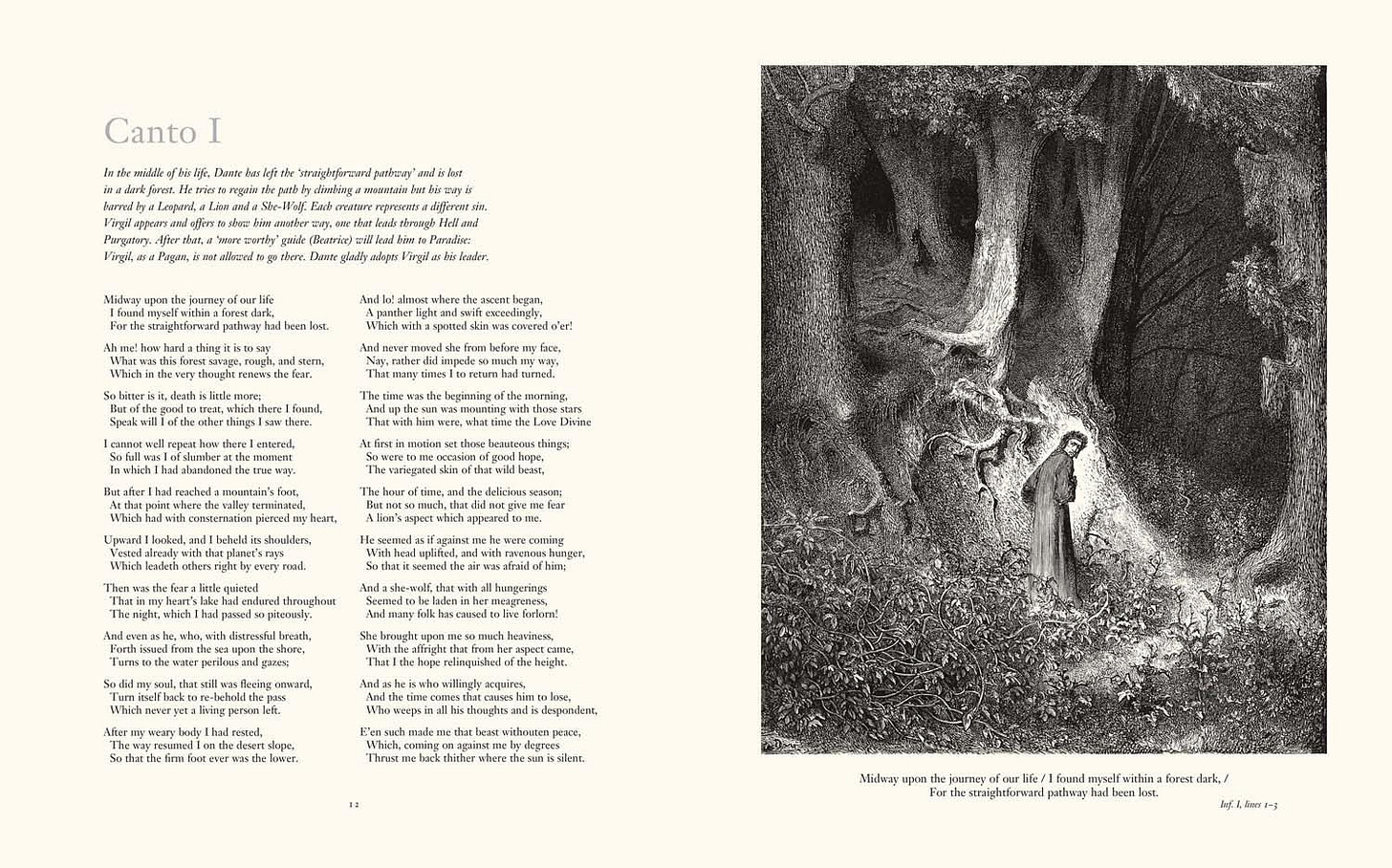
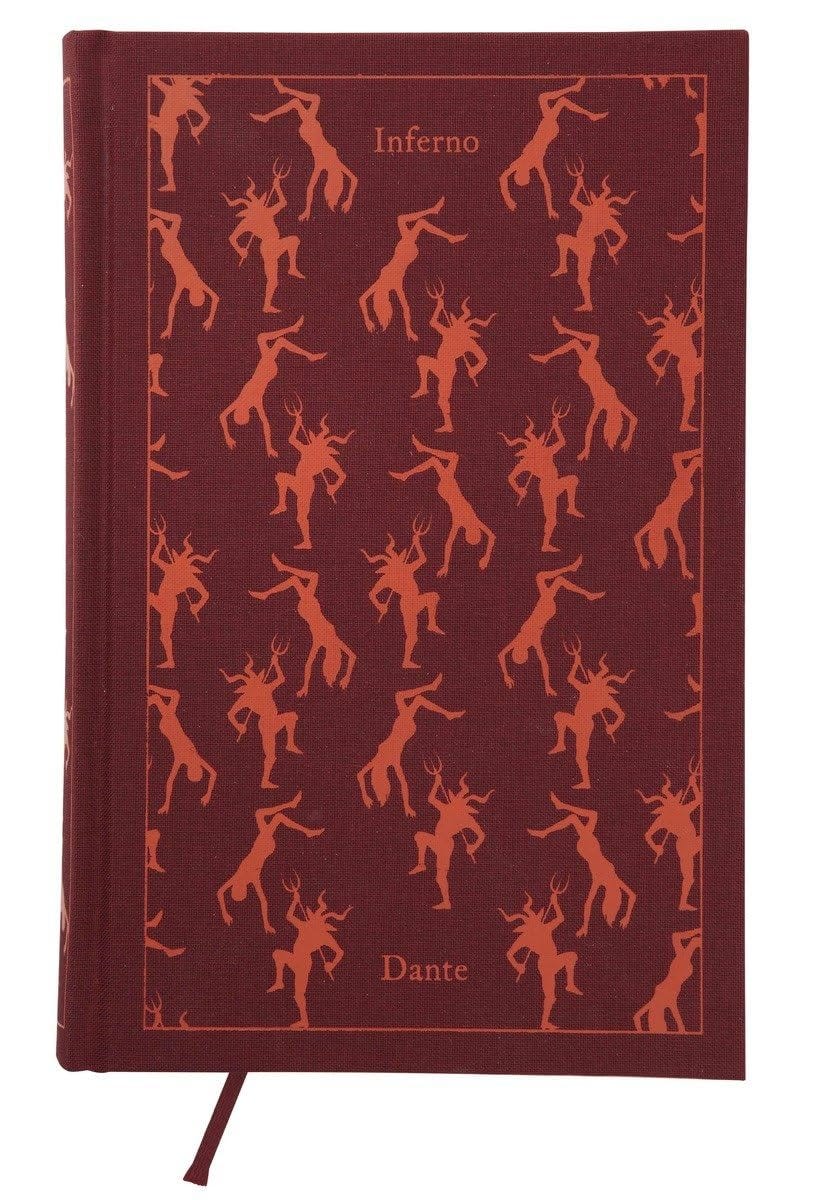

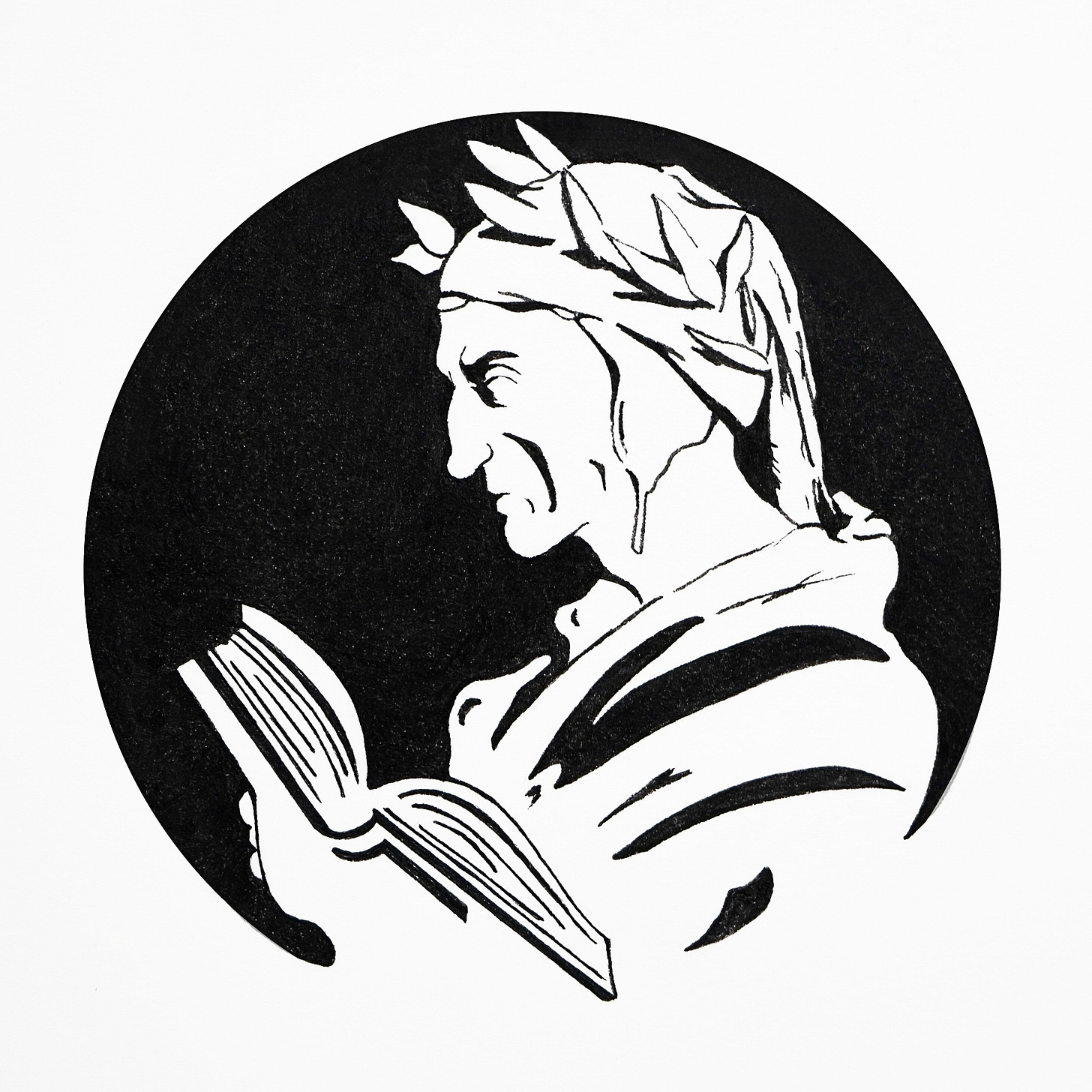

This is going to be a life changing experience! I am so excited to be a part of it and to savor all the richness of Dante.
I have been feeling daunted by the Divine Comedy, not sure if I will be able to pick up the rich nuances. This is perfect.